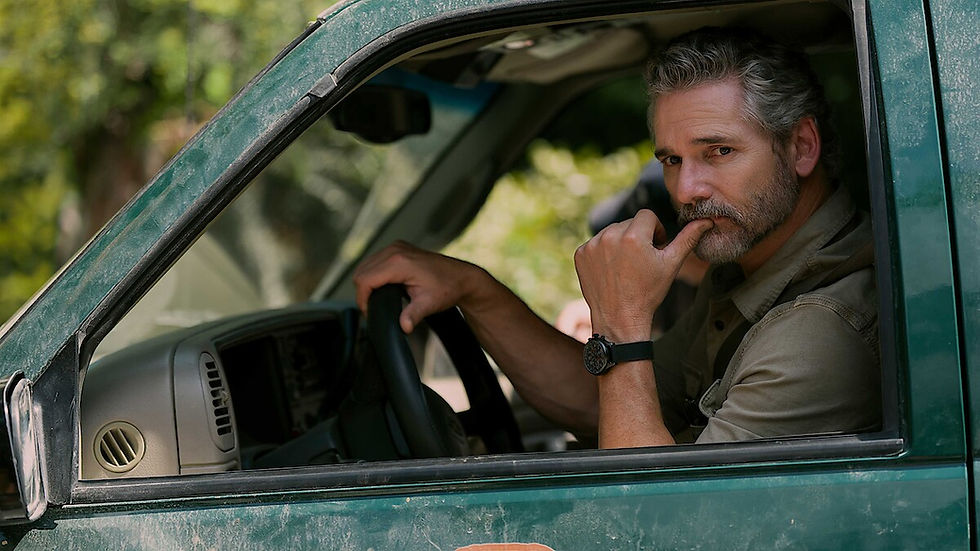
Television
Walking Through Smoke: Taron Egerton's Balancing Act
Some shows pull you in with clever plotting. Others with atmosphere. Smoke succeeds in doing just enough on both fronts to keep you watching—even if you’re not always sure why.
© Apple TV+
Roy Batty
15 augustus 2025
Some shows pull you in with clever plotting. Others with atmosphere. Smoke, the latest limited series headlined by Taron Egerton, succeeds in doing just enough on both fronts to keep you watching—even if you’re not always sure why. Stylish, moody, and occasionally teetering on the brink of the ridiculous, it’s the kind of show that leans heavily on its lead to carry it across the finish line. Fortunately, Egerton doesn’t exactly phone it in.
Egerton walks a fine line throughout. At times, he’s magnetic and wounded, convincing in his moments of silence and self-doubt. At others, he skirts close to self-parody. There are scenes where his intensity tips into the theatrical, as if he’s testing how far he can push a character before the illusion breaks. And occasionally, it does break. But that’s part of the fascination. Watching Egerton take risks—even when they don’t quite land—is more engaging than watching many actors play it safe.

That willingness to swing wide is something I’ve come to appreciate in Egerton’s career. He’s not coasting. From the gruff, understated work in Black Bird to the stylised chaos of Kingsman, and the full-bodied commitment of Rocketman, he’s clearly not afraid to try something different. Even Carry-On—a film that didn’t generate the buzz of his bigger titles—showed a willingness to experiment with tone and character. He reminds me a bit of Jeff Bridges in the early nineties. Bridges wasn’t always great, but he was always interesting. Egerton’s choices suggest a similar appetite for risk.
Smoke doesn’t always justify its more eccentric turns. The plot occasionally meanders, and the secondary characters are sometimes painted in strokes too broad for the atmosphere the show is aiming for. But it has an undeniable rhythm. There’s a confidence in the pacing, and a tension in the silences, that keeps you alert. Not everything needs to be explained. Some stories are best when they remain partially obscured, like a photograph developed just slightly out of focus.

The title Smoke itself carries more than a whiff of suggestion. It implies evasion, a refusal to be pinned down, something that slips through fingers the moment you try to grasp it. That thematic slipperiness is built into the show’s structure: people lie, motives shift, memories seem to fold in on themselves. Nothing is ever quite clear, and that opacity—rather than being frustrating—becomes part of the texture. It’s a story that breathes ambiguity.

That same ambiguity finds a human embodiment in Ntare Guma Mbaho Mwine, who delivers one of the series’ most unsettling and affecting performances. His presence has a kind of internalised gravity—he seems to secrete sadness. You never quite know whether to trust him, and yet you’re drawn to the ache that hovers behind his every word. With a minimum of screen time, he gets under Gudsen’s skin, and under ours too. There’s a moment where he simply looks at Egerton’s character, says nothing, and yet somehow manages to convey both shared pain and unspoken threat. It’s a remarkable bit of screen alchemy.
Smoke might not be a landmark series, but it has character. It takes chances. It looks fantastic. And in Egerton, it has a leading man who refuses to be predictable—even if that means occasionally overshooting the mark. That, in itself, is worth watching.
The latest














